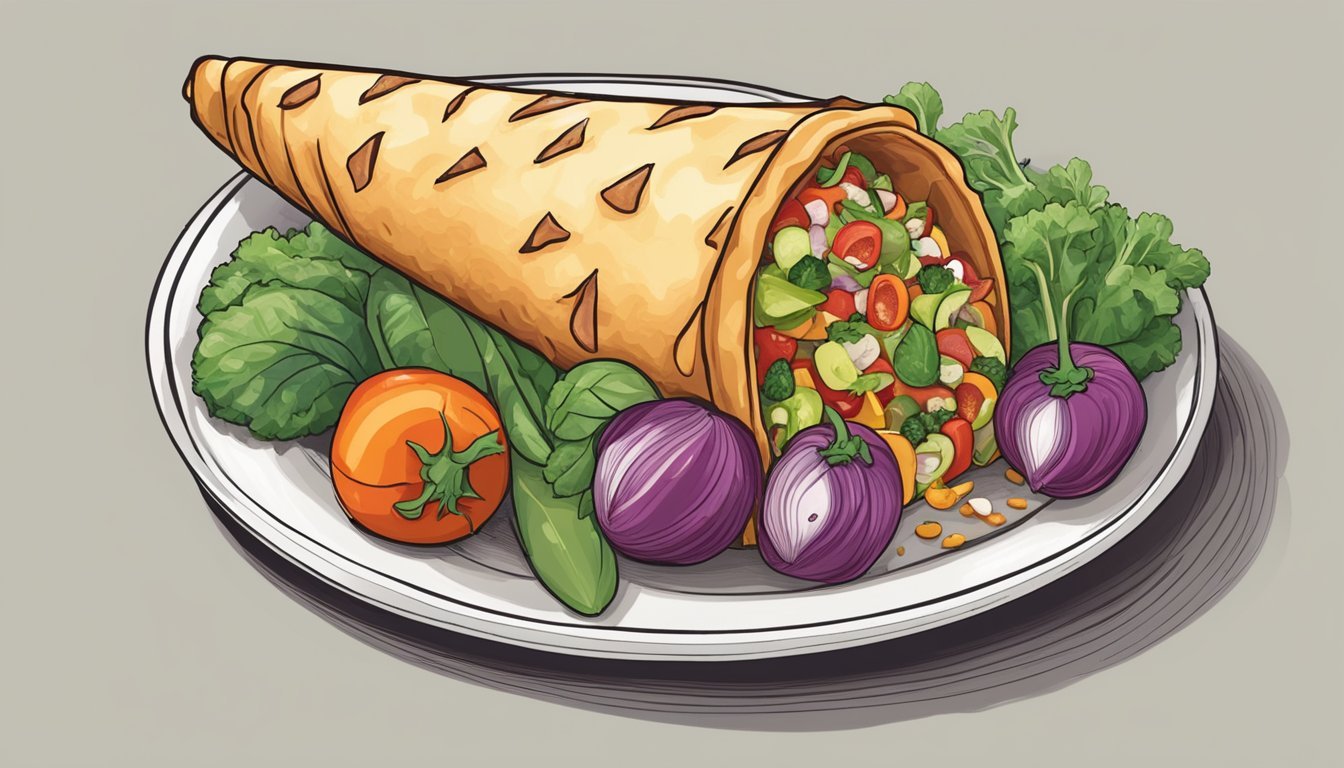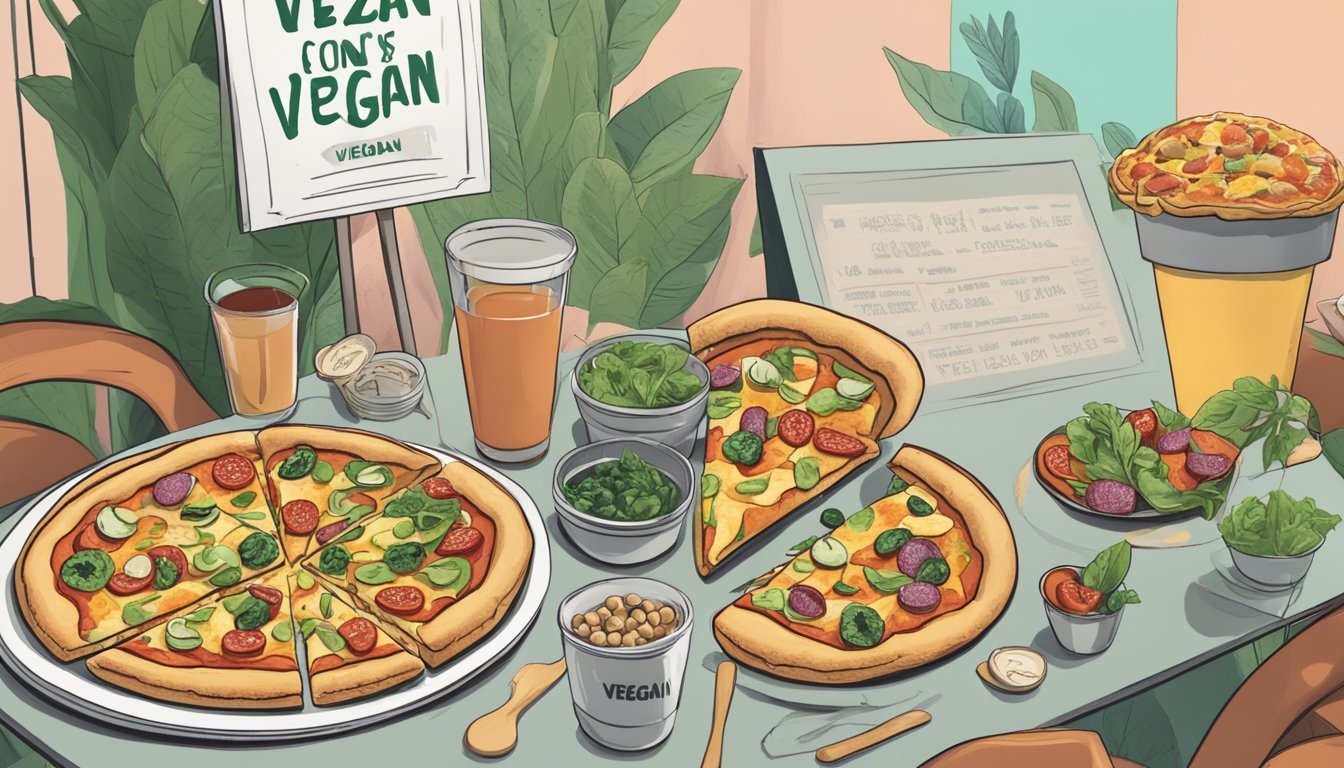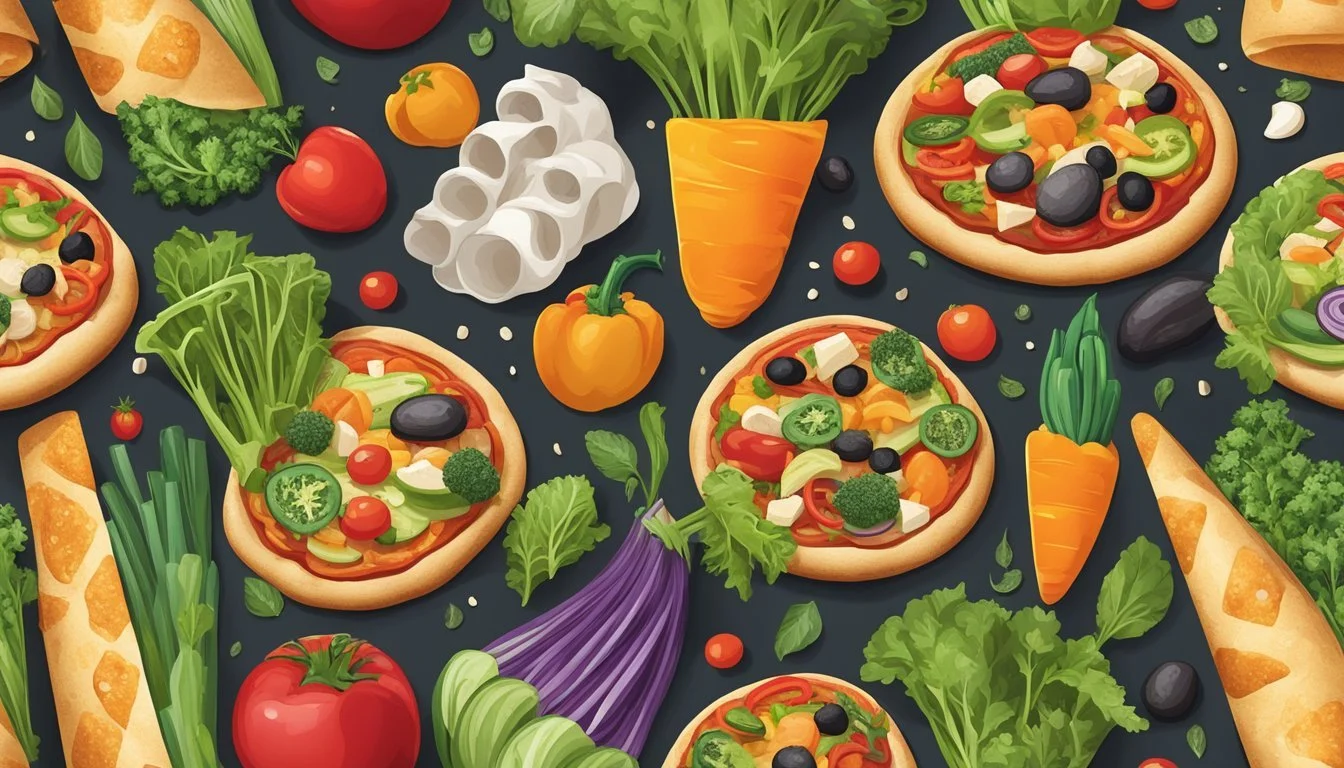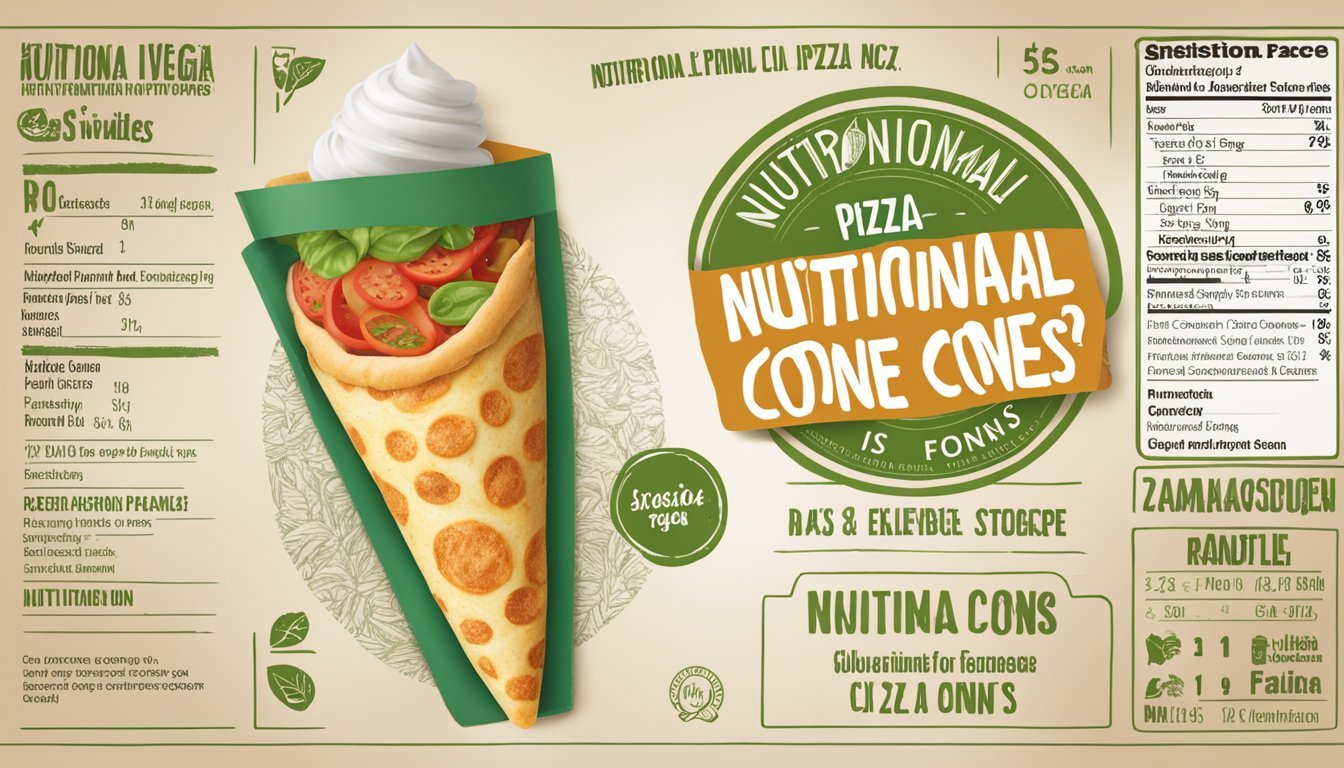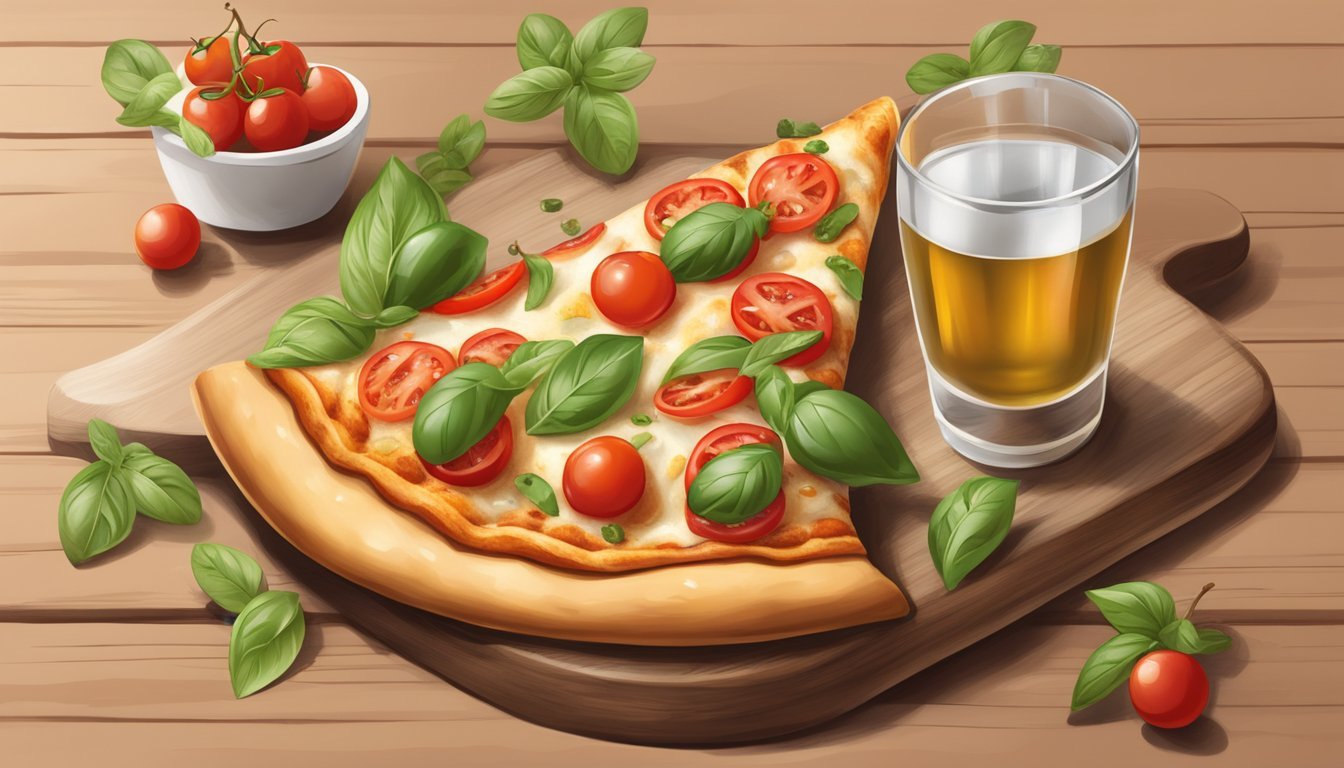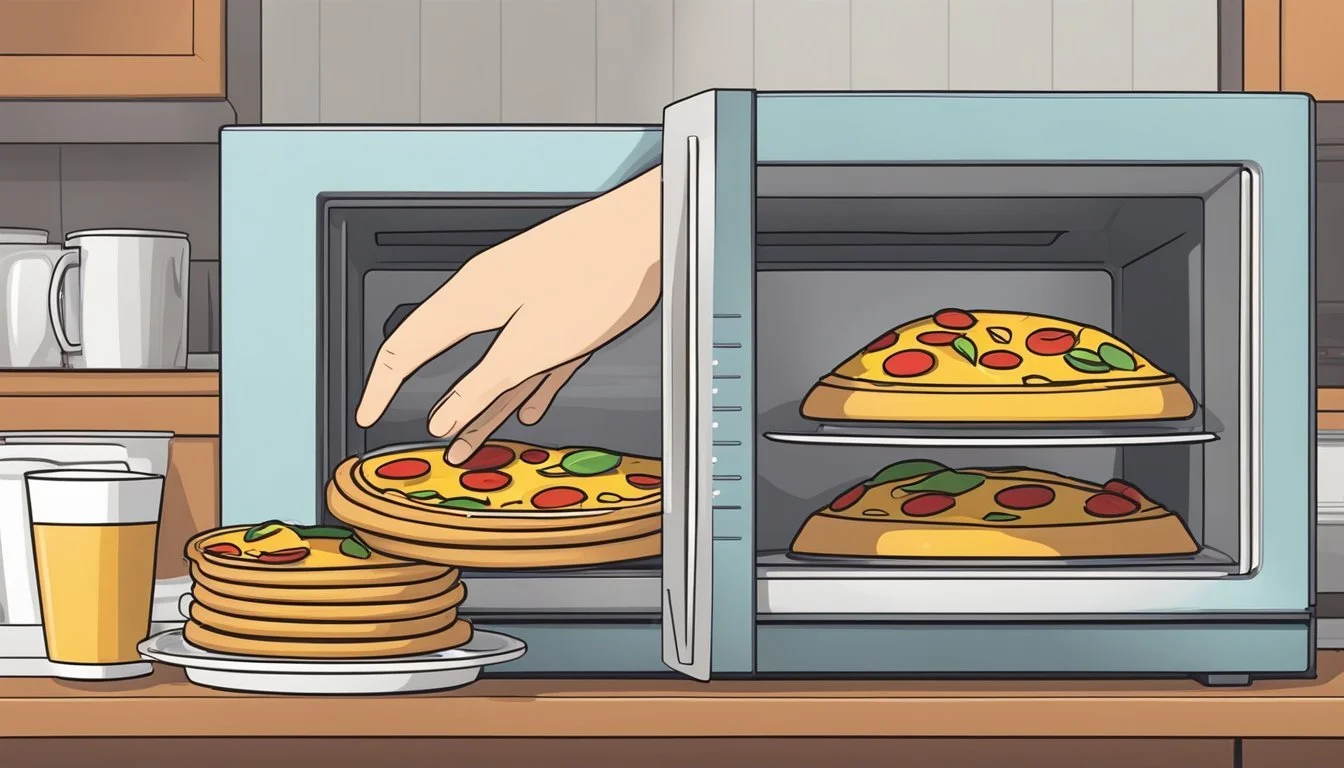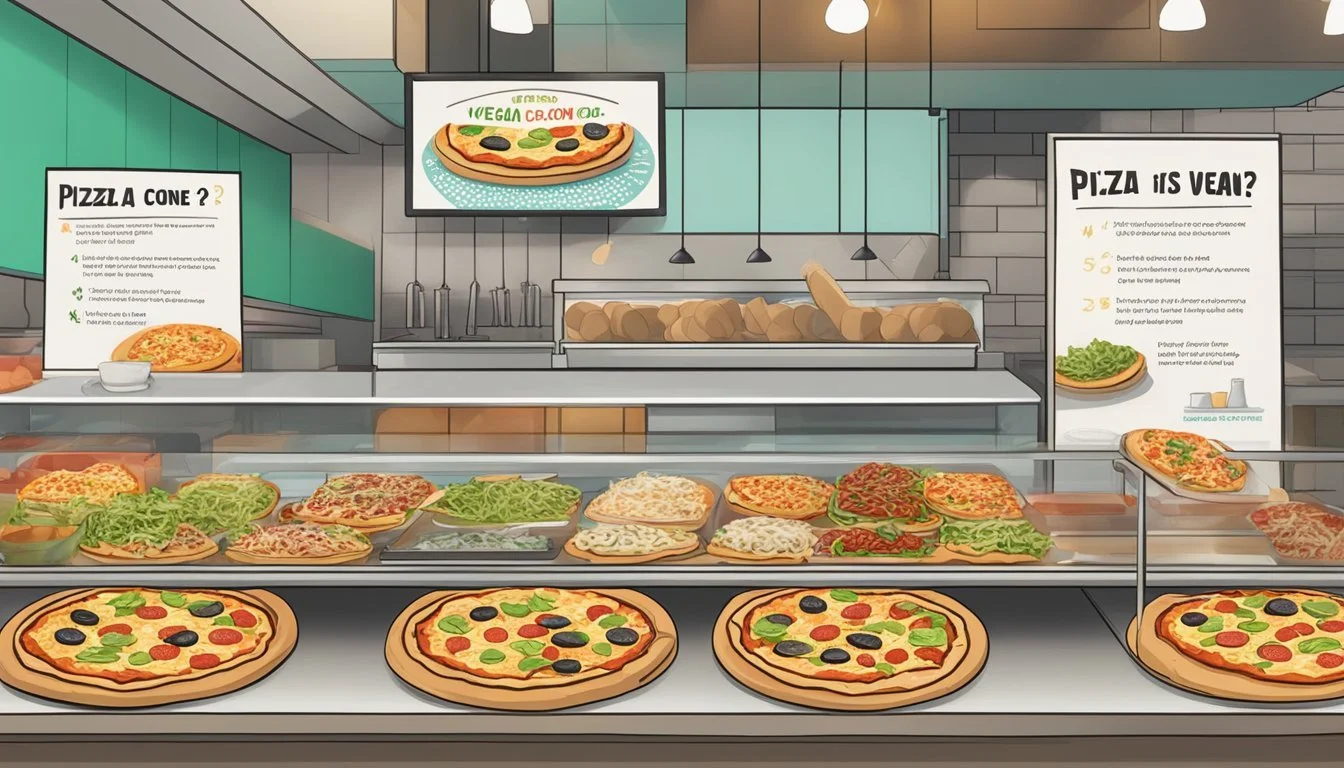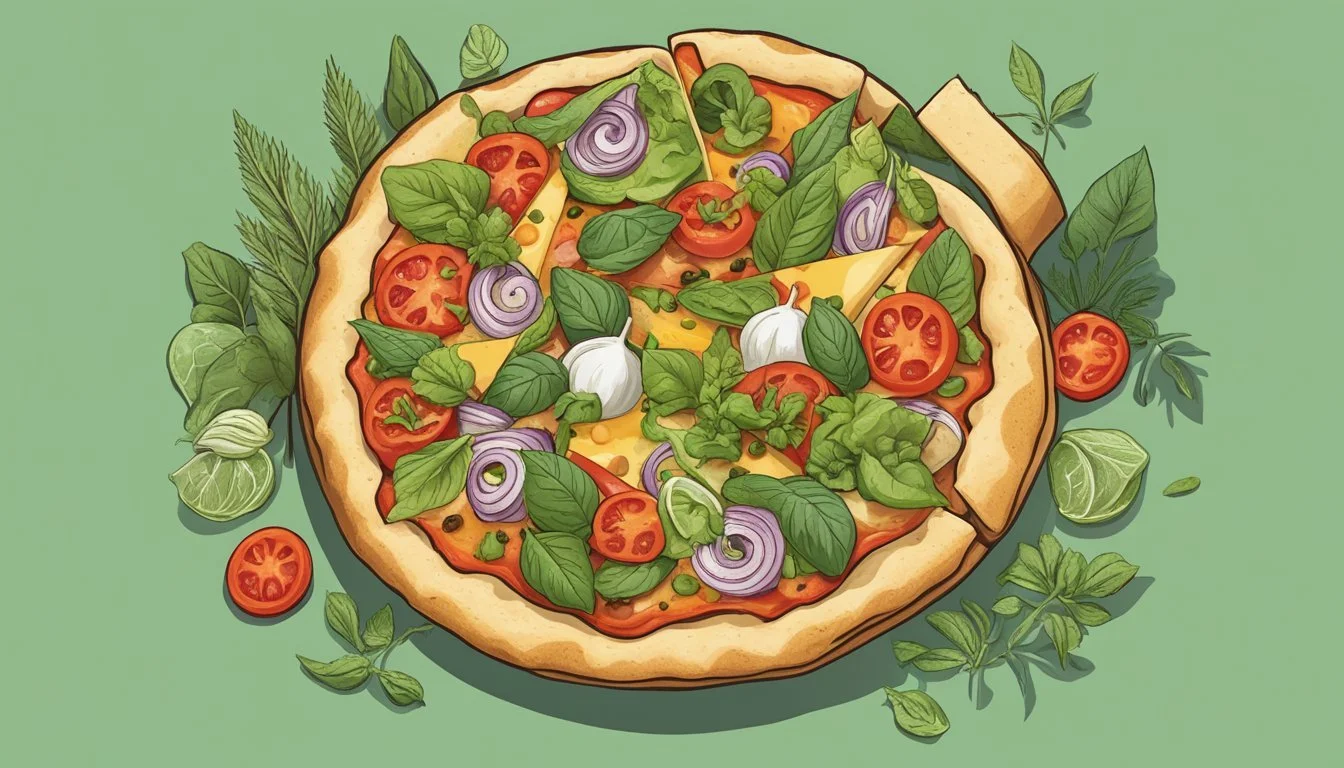Is Pizza Cone Vegan?
Uncovering the Dietary Facts
Pizza (What wine goes well with pizza?) cones, a creative twist on the traditional flat pizza, have gained popularity for their novelty and convenience. Shaped like a cone and filled with typical pizza ingredients, they offer a portable and less messy way to enjoy pizza. However, the question of whether pizza cones can fit into a vegan diet is not a one-size-fits-all answer. It largely depends on the ingredients used in the pizza dough, the fillings, and the preparation process.
For a pizza cone to be considered vegan, every component must be free of animal products. Traditionally, pizza dough is vegan-friendly, consisting of flour, water, yeast, and salt. However, some recipes or store-bought cones may include dairy products or eggs. Vegan consumers need to scrutinize the dough ingredients to ensure it meets vegan standards. The fillings for pizza cones, much like traditional pizza toppings, (What wine goes well with pizza toppings?) can vary widely. Classic pizza topping favorites such as tomato, olives, peppers, mushrooms, and pineapple are vegan, and many pizzerias and food establishments are now offering plant-based cheeses and meat substitutes to cater to the vegan market.
The preparation of pizza cones can also be adjusted to suit a vegan diet. Many recipes or ready-to-eat options may use oils or separate baking methods to prevent cross-contamination with non-vegan items. Vegan consumers must ensure that the pizza cones have not been prepared or baked with any animal-derived products to maintain a vegan-friendly meal. As the variety of vegan products expands, pizza cones become increasingly accessible to those following a vegan lifestyle, provided that attention is paid to the detail of ingredients and cooking methods.
Understanding Pizza Cones
The pizza cone combines traditional pizza ingredients in a portable, cone-shaped crust. This novelty has roots in Italian cuisine and caters to various dietary preferences, including vegan diets, with its adaptability.
History of the Pizza Cone
Pizza cones emerged as an innovative twist on classic Italian pizza. While not a traditional part of Italian cuisine, they represent a fusion of Italian flavors and the convenience culture of fast food. The idea likely originated from the concept of making pizza more portable and has since gained traction worldwide, especially in places like Kono Pizza, a chain that specializes in this novel form.
What is a Pizza Cone?
A pizza cone takes the ingredients typical of a pizza—dough, sauce, and toppings—and presents them in a cone shape. The result is an easy-to-eat, on-the-go variant that can be customized with various fillings, akin to how one might personalize their pizza pie.
The Vegan Diet and Restrictions
Adhering to a vegan diet means avoiding all animal products, which includes traditional pizza toppings like cheese and meats. Vegan pizza cones substitute these with plant-based alternatives, like dairy-free cheese and vegan pepperoni, often made from vegetables or textured proteins.
Popularity and Trend
The pizza cone has seen increasing popularity, as evident from its presence on various social media platforms like Instagram. This popularity is not only due to its novel form but also because it offers a unique experience and customizable menu options that are photogenic and shareable online, gathering positive reviews.
Pizza Cone vs. Traditional Pizza
The main difference between a pizza cone and traditional pizza lies in their shape and the way they are consumed. Pizza cones provide a handheld, less messy alternative, while regular pizza pies are typically associated with a sit-down meal.
Environmental and Health Considerations
From an environmental standpoint, the pizza cone's on-the-go nature could imply more packaging waste. However, health-wise, they can be tailored to fit dietary needs. For vegetarians and vegans especially, pizza cones can be a good source of nutrients if topped with vegetables and nutritional yeast, a popular plant-based cheese alternative.
Ingredients Breakdown
When making a pizza cone, the choice of ingredients is crucial for ensuring it's vegan. Ingredients typically include dough, fillings, and toppings, each requiring careful selection to maintain a vegan-friendly profile.
Dough Ingredients
Pizza cone dough is essentially regular pizza dough formed into a cone shape. A typical vegan dough consists of:
All-purpose flour: The base for the dough.
Yeast: To make the dough rise and become airy.
Salt: Added for flavoring.
Olive oil: Provides moisture and richness.
Warm water: To combine the ingredients and activate the yeast.
An alternative is to use a twisted sourdough preparation, substituting sourdough starter for traditional baker's yeast, which is also vegan.
Common Pizza Cone Fillings
The fillings of pizza cones mimic those of traditional pizzas and can include:
Cheeses: Non-vegan varieties include mozzarella, but vegan options are available.
Pizza sauce: Often vegan, as it is usually a simple mixture of tomatoes, olive oil, and herbs.
Meats: Such as pepperoni, Italian sausage, or other processed meats, which typically are not vegan.
Vegetables: Options like onions, spinach, and others are inherently vegan and add flavor and nutrition.
Vegan Substitutes for Toppings
Vegan pizza cones require substitutions to avoid animal-derived ingredients:
Cheeses: Vegan and nondairy cheese replacements are made from various plant bases.
Meats: Plant-based pepperoni and vegan sausage are suitable alternatives.
Sauce: Vegan-friendly options like marinara or a simple tomato sauce are commonly used.
Veggies: These can be included liberally, with possibilities such as pineapple, Margherita-style tomatoes and basil, and other vegetables.
By selecting appropriate ingredients, a pizza cone can be easily adapted to a vegan diet without sacrificing taste or texture.
Preparation Technique
The creation of vegan pizza cones involves crafting a plant-based dough, molding it into a cone shape, applying thoughtfully chosen toppings, and executing a precise baking process to ensure a crispy and savory result.
Making the Vegan Dough
For the dough, combine high-quality flour, salt, and sugar in a mixing bowl. Activate yeast in warm water to make the dough rise and become airy. Then mix in olive oil, which helps to create a moist texture. For a gluten-free version, opt for gluten-free flour blends that can produce a similar elasticity to traditional flour. Alternatively, sourdough starters are an excellent vegan option that can also be used to create an airy and flavorful base.
Shaping the Pizza Cone
Once the dough is ready, divide it into pieces and roll each into a flat semi-circle. Wrap these around cone-shaped molds, which can be greased to prevent sticking. It's important to ensure that there are no gaps or holes as you overlay the dough onto the molds. This gives the cones their characteristic form while allowing for even baking.
Vegan Topping Selection and Application
Choose vegan cheese varieties that melt well to mimic the texture and taste of traditional cheese. For the fillings, layer in chopped vegetables, tomato sauce, and other plant-based toppings such as seasoned meat substitutes or fresh basil for added flavor. The key is to layer your toppings strategically within the cone, promoting an even distribution so that each bite is flavorful and balanced.
Baking Process
The pizza cones should be baked until the dough is golden and crispy. The molds help retain the cone's shape during baking—initially, bake with the molds, but then remove and finish baking without them to allow the inside to become fully cooked. The exact baking times may vary, but a general guide is to start with 7 minutes with the molds on, followed by an additional few minutes after removing them to achieve the right texture.
Customizing Your Vegan Pizza Cone
Crafting a vegan pizza cone requires paying attention to a variety of components, from the selection of vegan cheeses that melt well to the range of innovative toppings that add unique flavors and textures.
Choosing the Right Vegan Cheeses
The selection of vegan cheese is crucial for achieving the desired taste and meltability in a pizza cone. Nutritional yeast provides a cheesy flavor that can be used in a sprinkle form or as a base for homemade cheese sauces. Non-dairy cheeses made from soy, nuts, and root vegetables can offer a range of textures from airy and moist to perfectly crispy when baked.
Vegan Mozzarella: Mimics the classic pizza cheese well, melting into a stretchy, savory layer.
Vegan Cheddar: Adds a sharper, more pronounced flavor and usually melts with ease.
Cashew-Based Cheeses: These cheeses tend to be rich and creamy, ideal for those who want a more gourmet touch.
Innovative Vegan Toppings
Toppings on a vegan pizza cone can range from traditional vegetables to bolder, more adventurous choices. Classic toppings like mushrooms, onions, and bell peppers are always popular, but one can also consider:
Vegan Pepperoni: For a smoky and sometimes spicy kick that mimics its meat counterpart.
Jalapeño: Adds a spicy dimension for those who enjoy a little heat.
Sourdough Crumbles: Offer a tangy flavor and a pleasant contrast in texture.
Toppings not only add taste but various textures, ensuring each bite is interesting and satisfying.
Adapting Global Flavors
Embrace the culinary diversity of vegan pizza cones by incorporating global flavors. Here are some themed ideas based on popular international cuisines:
Italian: Classic with basil, tomato, and vegan Parmesan or mozzarella.
Hawaiian: Sweet pineapple paired with savory vegan ham and a sprinkle of lime.
Spicy Latina: Vegan chorizo, habanero sauce, and a vegan cheese blend can create an explosive flavor profile.
These flavors can be adjusted to personal taste preferences, offering a world of possibilities in each bite.
Balancing Flavors and Textures
A successful vegan pizza cone satisfies with a balance of flavors and textures. The base should be both crispy and sturdy to hold the fillings. For example, a sourdough base can provide a crisp exterior and an airy interior. The vegan cheese should be moist and melty. Toppings need to bring in both savory and acidic notes to counterbalance the richness of the cheese.
Add lime to add zestiness and freshness, cutting through the creamy cheese.
Use sauces like habanero sauce sparingly to introduce heat without overwhelming the other flavors.
A thoughtful combination of these elements will ensure that each vegan pizza cone is a harmonious delight.
Nutritional Information
When examining the nutritional profile of vegan pizza cones, it is essential to consider their calorie content, macronutrient breakdown, and the specific benefits associated with their plant-based ingredients. Additionally, the management of allergens and dietary restrictions is crucial to ensuring these options are accessible to all individuals seeking vegan pizza cone experiences.
Caloric and Macronutrient Content
A typical vegan pizza cone generally contains approximately 200-250 calories per serving, which can vary based on the type of crust and selection of toppings. The macronutrient distribution includes carbohydrates from the dough, proteins from plant-based toppings like nutritional yeast and vegan cheese, and fats from oil or alternative dairy-free options. Unlike traditional pizza cones, which may have higher calorie counts due to cheese and meat, vegan pizza cones offer a lighter option.
Component Approximate Amount Calories 200-250 kcal Proteins Variable* Carbohydrates Variable* Fats Variable*
*Varies with chosen ingredients.
Dietary Benefits of Vegan Options
Vegan pizza cones provide several health advantages associated with plant-based diets. They tend to be lower in saturated fats and cholesterol, given the omission of animal products. Toppings such as veggie ingredients, including tomato, olives, and peppers, offer essential vitamins and minerals. Nutritional yeast, a popular vegan topping, not only imparts a cheesy flavor but also serves as a source of protein and B-vitamins.
Vitamins and Minerals: Veggies provide an array of nutrients.
Low in Saturated Fats: Plant-based cheeses and meat substitutes are generally lower in unhealthy fats compared to their animal-based counterparts.
Fiber: Higher in dietary fiber, especially when whole-grain or gluten-free crusts are chosen.
Handling Allergen and Dietary Restrictions
Vegan pizza cones can often cater to various dietary needs, including gluten-free options for individuals with celiac disease or gluten intolerance. Establishments should disclose all ingredients to ensure transparency for those with allergies. Cross-contamination is a critical factor to address; establishments offering vegan pizza cones must take proper precautions to prevent mix-ups with non-vegan or allergenic substances.
Gluten-Free: Options available for gluten-sensitive individuals.
Allergen Management: Clear communication of ingredients used is necessary.
Cross-Contamination: Proper measures should be in place to avoid it.
Serving and Presentation
When serving vegan pizza cones, presentation is key for an enticing dining experience that aligns with the unique appeal of this innovative dish.
Pairing with Side Dishes and Drinks
A vegan pizza cone can be complemented by a variety of side dishes and drinks. The menu should offer items that enhance the flavors in the pizza cone. Simple salads with a vinaigrette dressing or roasted vegetables make excellent side choices, as their lightness balances the richness of the pizza cone. For drinks, consider offering a selection of vegan-friendly beverages such as herbal iced teas or craft sodas. Both options should be carefully selected to harmonize with the pizza cone's flavor profile.
Side Dishes:
Fresh garden salad with vinaigrette
Roasted seasonal vegetables
Drink Pairings:
Flavored herbal iced teas
Artisanal craft sodas
The Art of Pizza Cone Plating
In showcasing pizza cones, the artistic plating is as important as the preparation. They should be served upright, typically using a custom rack that not only accentuates their unique cone shape but also provides practical support. Aesthetically pleasing garnishes that reflect the flavors within can be added for a touch of elegance. One may see fresh herbs or a light sprinkle of nutritional yeast to exemplify the vegan aspect of the dish. The location or setting can further accentuate this by ensuring the ambiance complements the novelty of pizza cones.
Storing and Reheating
Proper storage and reheating methods are crucial to preserving the taste and texture of pizza cones. Ensuring that the cheese remains intact and the cone stays crispy can make a significant difference in the final quality of the leftover pizza cone.
Best Practices for Storage
To store pizza cones, one should let them cool down to room temperature. Once cooled, they can be placed in an airtight container or wrapped in cling film or aluminum foil and stored in the refrigerator. This method helps in preventing the cheese from drying out and maintains the cone's structure.
Containers: Airtight, moisture-resistant
Wrap: Cling film or aluminum foil
Refrigerator: Store at a consistent temperature
Reheating for Best Quality
When reheating a pizza cone, one aims to restore the cone's original crispiness while ensuring the cheese is properly melted. The oven or a toaster oven is typically the preferred method over microwaving to achieve a crispy texture.
Preheat the oven or toaster oven to 375 degrees Fahrenheit.
Place the pizza cone on a baking sheet or oven-safe dish.
Reheat for 10-15 minutes, monitoring that the cheese is melted and the cone is returning to a crispy state.
It is not recommended to seal them fully in foil as the steam can make the cone lose its crunch. Instead, loosely tenting the foil over the pizza cone helps protect the cheese without trapping too much steam.
Where to Find Vegan Pizza Cones
In the quest for a unique and animal-friendly twist on traditional pizza, vegan pizza cones are a novel culinary delight. They can be found at a range of locations, each offering various preparation methods and flavors tailored to vegan preferences.
Restaurants and Eateries
Many restaurants have embraced creative plant-based offerings, featuring vegan pizza cones on their menus. Vegan Dollhouse appears to be an innovative spot where diners can indulge in these cones. They meticulously prepare the cones by wrapping dough around metal models and then baking them to perfection. After cooling, they are removed from the model and baked again to achieve crispiness. The restaurant might not be explicitly mentioned, but one might look for similar vegan-friendly joints along Eastern Avenue in New Jersey, known for its eclectic dining scene. Hours typically vary, so checking in advance is advisable.
Home Kits and Pre-Made Options
For enthusiasts keen on crafting their own vegan pizza cones at home, various DIY kits and pre-made dough options exist. These products often come complete with cone-shaped molds and vegan dough mixes. Local health food stores or supermarkets in New Jersey might stock these convenient home kits. Additionally, ready-to-use vegan pizza bases that can be handily shaped into cones are accessible, allowing for a personalized touch with preferred toppings.
Local and Online Suppliers
Discovering vegan pizza cones can also be a simple online endeavor. Suppliers offer an array of plant-based pizza products that cater to the vegan diet. These vendors may sell partially baked cones ready for filling and final baking, ensuring a gourmet experience in the comfort of one's home. Local suppliers can sometimes be found through vegan marketplaces or by searching for "vegan pizza cones near me" to locate nearby options with delivery or pickup available. Online suppliers generally provide detailed product descriptions, including menus and preparation instructions, and accept orders at all hours.
Summary and Final Thoughts
This section distills the essence of the vegan pizza cone experience and anticipates its trajectory in the vegan marketplace.
Recap of the Vegan Pizza Cone Experience
The vegan pizza cone is a novel twist on traditional pizza, providing a convenient and playful way to enjoy plant-based flavors. Customer reviews often highlight the creativity of the cone's design, emphasizing how the vegan adaptation must carefully avoid gaps or holes when wrapping the dough around a cone mold. Baking is a two-step process: once after initial shaping and again after removing the metal cone to ensure structural integrity and crispness. While the concept has grown popular in places like New Jersey and beyond, its success demands rigorous attention to ingredient choices, specifically ensuring the pizza dough and toppings are devoid of animal products.
The Future of Pizza Cones in the Vegan Market
As the demand for plant-based options continues to soar, pizza cones are predicted to carve out their niche in the vegan market. Social media buzz and increased interest in vegan lifestyle choices encourage innovation in this category. The future may hold a broader incorporation of globally-inspired flavors and an expansion of readily-available pre-made vegan pizza cone bases, catering to a growing demographic seeking quick, ethical, and delicious food options. As this trend progresses, it's crucial for pizza cone makers to stay true to vegan principles while adapting to consumer preferences and trends in the culinary world.
Resources and Additional Information
For individuals interested in vegan pizza cones, numerous resources spanning books, online communities, and hands-on experiences can provide valuable insights and support. These resources offer detailed information on recipes, preparation methods, and even connect enthusiasts with fellow vegan pizza cone aficionados.
Books and Guides
Books and guides devoted to vegan cooking are a treasure trove of pizza cone recipes. These materials often provide step-by-step instructions and tips for crafting the perfect vegan pizza cone. Readers can find books specifically focused on vegan pizza, with sections that may include diverse crust options and innovative plant-based toppings.
Vegan Pizza: 50 Cheesy, Crispy, Healthy Recipes by Julie Hasson
Plant-Powered Families: Over 100 Kid-Tested, Whole-Foods Vegan Recipes by Dreena Burton
Websites and Online Communities
Websites such as Vegan Dollhouse offer detailed guides on how to create pizza cones without the use of any animal products. These sites are particularly beneficial for home chefs looking for unique and creative recipes that twist the classic pizza into cone form. Additionally, online communities on platforms like Instagram showcase various vegan pizza cone creations, offering inspiration through a visual feast of shared photos and experiences.
Vegan Dollhouse: www.vegandollhouse.com
Instagram Hashtags: #VeganPizzaCones #VeganPizza
Cooking Classes and Workshops
Local cooking classes and workshops can offer a hands-on experience for those interested in vegan pizza cones. Brands like Kono Pizza, known for pioneering the pizza cone trend, may have workshops or promotional events that focus on making pizza cones. Virtual cooking classes are also an option for those who prefer learning from the comfort of their own kitchen.
Local Vegan Cooking Workshops
Online Cooking Platforms: www.masterclass.com, www.udemy.com

